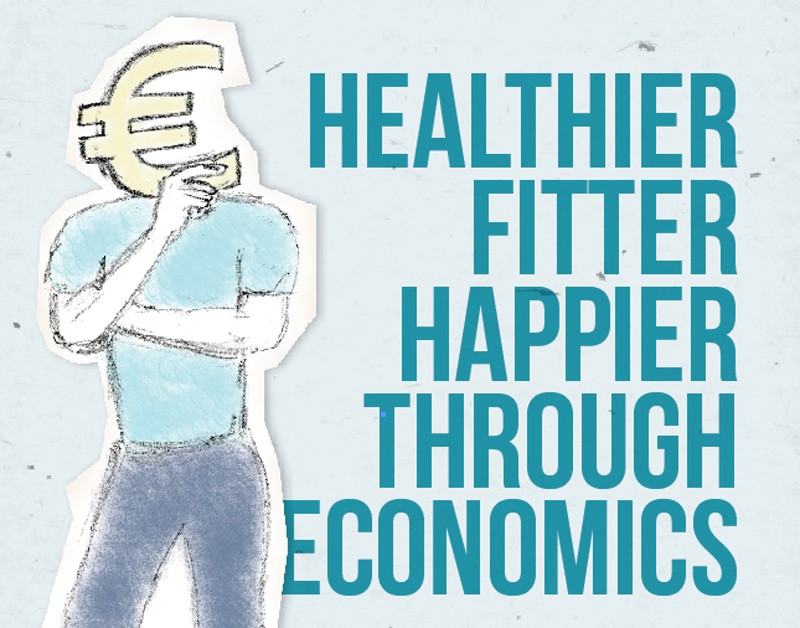When times are hard, frustrated people question why. Conspiracy theories offer attractive answers, sometimes false and sometimes true. Andrew Firbank explores the psychology behind conspiracy theories: Why are they so enticing? What are the risks? And should they be challenged?
Continue readingPolitics, policy and risky business
As a child, Prof. Noellie Brockdorff was fascinated by the robots that inhabited the world of Isaac Asimov’s novels. She wanted to know why humans are different to robots. So why are human beings not perfectly rational creatures like robots? Dr Claude Bajada finds out more.
PORN: How Do We Feel About It?
Around 13% of all internet searches can be linked to keywords related to erotic material, while by 2017 it is estimated that about a quarter of a billion people will be accessing pornography on mobile devices. While by far not a recent phenomenon, the widespread use and growth of the internet has made pornography common and easy to access. So why pornography? What more do we really need to know? And what is the point of such research anyway? From a psychological point of view, the visible increase of use needs to be studied, particularly in Malta, since very little research has been conducted.
Nicola Falzon (supervised by Dr Nicholas Briffa) focused her undergraduate research on the attitudes towards pornography; she looked into the literature regarding the effects of addiction, among other psychological implications. Despite the grave implications the field may imply, this study showed that not all effects are necessarily detrimental. University of Malta (UoM) students were found to have a fairly relaxed and liberal attitude towards it.
Raw data was collected through online surveys, of which 261 UoM students participated. The data was analysed using SPSS and data sets were compared between males and females, older and younger adults, and then compared to previous local and international research. Similar to information obtained through literature reviews, the results showed significant differences in the attitude towards pornography between men and women. Males were shown to watch pornography more frequently and had a more positive attitude, while females considered pornography to be harmful. However, both males and females answered similarly on the majority of survey statements.
Attitudes towards porn might be more similar than previously assumed. There were no significant age differences in the frequency of use or views of porn as harmful. Younger adults displayed a more positive attitude to porn than their older counterparts. Finally, while most female respondents agreed that access to pornography should be restricted, a strong majority did not agree it should be illegal.
So, what is the point of such research in the first place? Primarily, further studies into pornography can contribute towards the field of psychology, first by deepening the understanding of the phenomena, and secondly because it directly effects how treatment can be improved when porn causes a negative effect. Also, new methods of therapy and counselling could be developed to help with addiction that can cause relationship issues. Other problems include excessive masturbation that can lead to isolation from real life relationships and sexual practice. Research can also help influence changes in social policy, for example by including ‘Porn Literacy’ in sex education—currently absent. In Malta, 41% of 16- to 18-year-olds are sexually active; many learnt about sexual practices and pleasure from the internet, films, and video. It is no longer convenient to remain naïve at the expense of public health.
This research was carried out as part of a Bachelor in Psychology at the Faculty for Social Wellbeing, University of Malta.
by Nicola Falzon
Science, art, academia: Star Trek
The Star Trek academic symposium will be held at the Faculty of ICT, University of Malta, on 15 and 16 July 2016. This event will be a platform for both academics from various disciplines as well as Star Trek fans to meet and explore the intersection between the humanities and the sciences. There will be inspirational presentations from national and international speakers, with the programme tailored to attract a wide audience. Contributors will be encouraged to explore contemporary issues in medicine, science, and technology as well as philosophical, psychological, and sociological issues connected with the science fiction entertainment franchise Star Trek.
A similar symposium was held in 2014 and which proved to be a worldwide first that successfully drew participation from many international scholars including American philosopher Jason Eberl, UK-based neonatologist and ethicist Neena Modi.
As a result of its success, this second event that marks the 50th anniversary from the launch of Star Trek: The Original Series is being organised. The event will be held under the auspices of the Humanities, Medicine and Sciences Programme (HUMS), a University of Malta programme set up to explore and encourage the interfaces between the humanities, medicine, and sciences. The Science Fiction Symposium will appeal to scientists and fans of science fiction alike..
For more information, visit the website.






